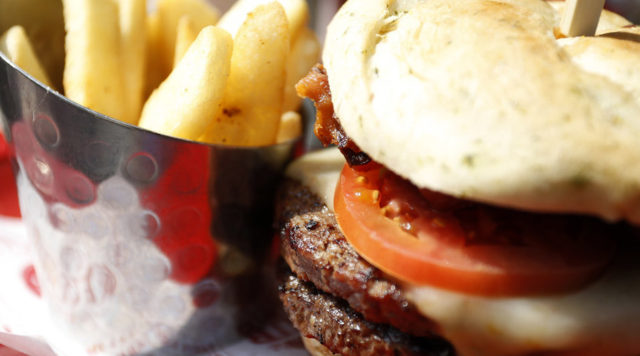After the alcohol ban, the southern state of Kerala has introduced a “food tax” on the restaurants or joints that sell pizza, burgers, and donuts.
This first of its kind move is brought into action to stop the consumption of junk food and control one of the biggest problem faces worldwide obesity. The Kerala government plans to charge a whopping 14.5% tax fast food sold by chains like McDonald’s and Domino’s, expecting to raise Rs10 crore annually.

Killing Obesity:
According to a study by British Medical Journal in May 2016, tax on unhealthy food and beverages can slow down the rate of obesity in the same as putting a tax on cigarettes can reduce their consumption.
Although several places in the world, including Denmark and Hungary, charge “food tax” on junk food, the effect of this tax in Kerala seems debatable. A State health department study across 1,500 schools showed that one in two students in Kerala faced lifestyle diseases.
With only 7 McDonald’s and 9 Dominos outlets, the result is less likely to make a huge difference. Though experts still believe that this could be a good start and other states would be willing to consider this tax.

The desi culprits aren’t liberated either. The government plans to put an end to the use of ready-to-eat chapatis by putting a 5% tax on them. Goodbye, convenience!
The Cry of the retailers:
The Kerala government on Friday said that the retailers could pass on the burden on the customers if the wish to.
With retailers already losing their customers to luxury, dining restaurants, food trucks and food festivals, this proposal could hurt their sales severely.
According to Unnat Varma, Managing Director, Pizza Hut, “The move is business-unfriendly. It calls out the organised, eating out sector. We cannot pass the burden entirely to consumers.
Bihar has done it too!
- Earlier this year, in January, Bihar government had put a 13.5% tax on our beloved “samosas”. Also, it charges a luxury tax on sweets that cost more than Rs. 500 per kg.
- Last year, BJP came up with an idea to introduce “sin tax”, a tax on sugary, carbonated drinks that would be as high as 40%. In response, some of the world’s biggest beverage companies threatened to partially close factories. Since then this tax has been out of the picture.
Unlike the various other countries, food tax in India seems far off. Taxing food would only result in job losses, cross-border shopping, and another administration failure.
Apart them that, the government needs to decide what would qualify as “junk”. What about the whole wheat pizza that can prove to be nutritional after a tiring day? I don’t think the government is ready to undertake an exercise to determine the nutritional value and saturated fat content of fast food.
The banning of chapattis is not going to do enough but put another dent in our pockets. Since domestic help in Kerala is expensive and hard to find, a younger generation is most likely to bid chapattis good-bye.
Tackling obesity:
Rather than implementing such a massive tax on the items that many people look forward to at the end of their week, Government should invest in making people aware of the hazardous effects of obesity.
Awareness drives in malls, seminars in school or even providing strict warnings as those given for tobacco consumption and smoking could be more beneficial.
Also if the restaurants and joints provide people the nutritional and the fat content in the menus provided by them, people would get more conscious about their health. Because at the end of the day, nothing scares Indians more than another huge tax.
Also Check out
http://edtimes.in/2016/06/demystifying-diabetes-mellitus/

































